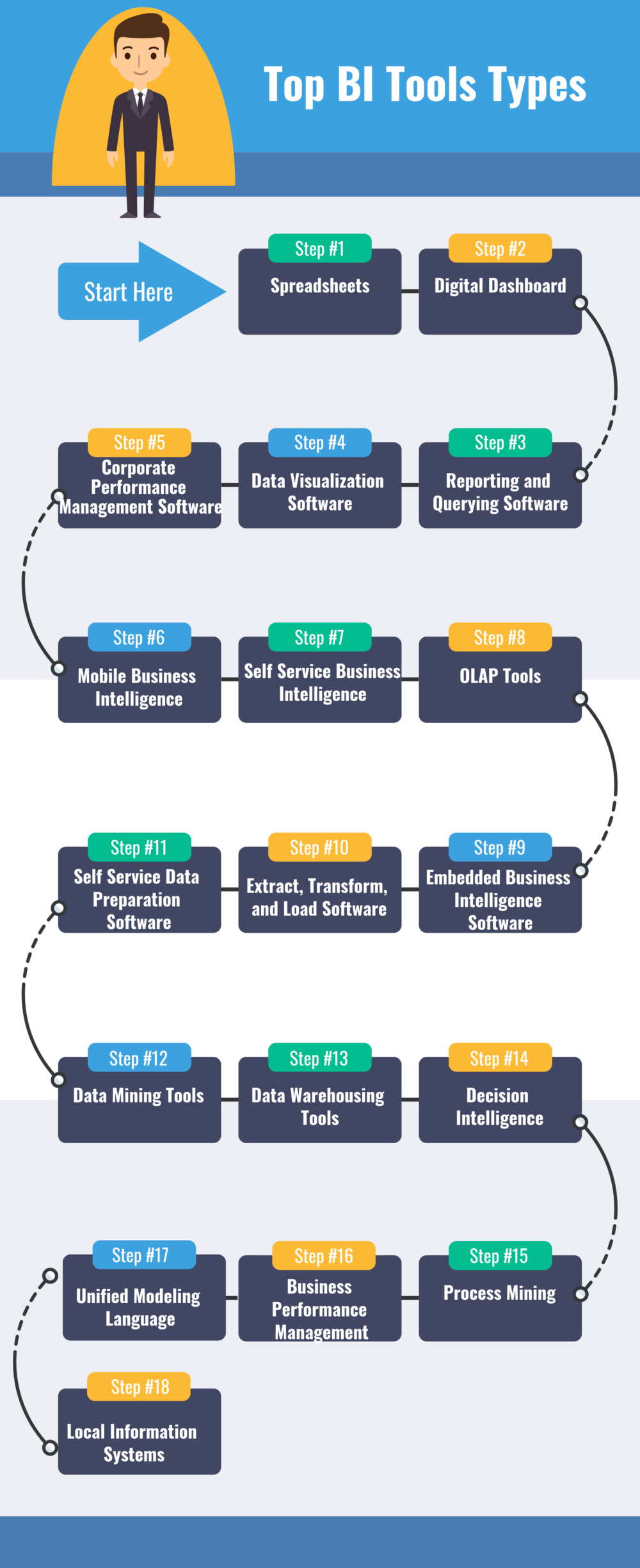Recovery from a Car Accident
If you’ve been in a car accident, you know that the road to recovery can be long and winding. But with the right care and support, you can get back on your feet and reclaim your life.
Physical Recovery
The physical injuries you sustain in a car accident can range from minor cuts and bruises to more serious injuries, such as broken bones, head injuries, and spinal cord injuries. No matter how severe your injuries are, it’s important to seek medical attention as soon as possible. Early treatment can help to prevent further complications and speed up your recovery.
Depending on the extent of your injuries, you may need to undergo physical therapy, occupational therapy, or speech therapy. These therapies can help you to regain your strength, mobility, and range of motion. You may also need to take medication to manage pain or other symptoms.
Physical recovery from a car accident can take time and effort. But with patience and perseverance, you can eventually heal your body and get back to your normal routine.
Emotional Recovery
In addition to the physical injuries you may sustain in a car accident, you may also experience emotional trauma. This trauma can manifest itself in a variety of ways, such as anxiety, depression, fear, and guilt. It’s important to acknowledge and address your emotional needs as part of your recovery process.
There are many different ways to cope with the emotional aftermath of a car accident. Some people find it helpful to talk to a therapist or counselor. Others find comfort in support groups or online forums. Still others find solace in activities such as yoga, meditation, or spending time in nature.
Whatever coping mechanisms you choose, it’s important to be patient with yourself. Emotional recovery takes time, and there will be setbacks along the way. But with time and effort, you can heal your emotional wounds and move on with your life.
Financial Recovery
A car accident can also have a significant financial impact. You may have to pay for medical expenses, lost wages, and property damage. If you’re not able to work, you may also lose your health insurance. The financial burden of a car accident can be overwhelming, but there are resources available to help you.
If you’re uninsured or underinsured, you may be able to get help from government programs or from a non-profit organization. You may also be able to file a lawsuit against the at-fault driver. If you’re successful in your lawsuit, you may be able to recover compensation for your medical expenses, lost wages, and pain and suffering.
Recovering from a car accident can be a long and challenging process, but it’s important to remember that you’re not alone. There are people and resources available to help you, and you will eventually heal and move on with your life.
Recovery from Car Accident: A Detailed Guide
A car accident can be a traumatic experience, both physically and emotionally. The recovery process can be long and challenging, but it is important to remember that you are not alone. There are many resources available to help you get back on your feet again.
Immediate Actions
After a car accident, it is crucial to prioritize safety, seek medical attention, and document the scene. If you are able, move your vehicle to a safe location and turn on your hazard lights. Check yourself for injuries and then check your passengers. If you or anyone else is injured, call 911 immediately. Once you have called for help, take pictures of the accident scene and exchange information with the other driver(s) involved.
Seeking Medical Attention
Even if you don’t feel injured, it is important to see a doctor after a car accident. Some injuries, such as whiplash, may not be immediately apparent. A doctor can examine you for injuries and recommend treatment.
If you are experiencing any of the following symptoms, seek medical attention immediately:
- Headache
- Neck pain
- Back pain
- Abdominal pain
- Nausea or vomiting
- Dizziness
- Confusion
- Loss of consciousness
These symptoms could be a sign of a serious injury, such as a concussion or internal bleeding.
Recovering from Physical Injuries
The recovery process from physical injuries can vary depending on the severity of the injuries. Some injuries may heal quickly, while others may take months or even years to heal. During the recovery process, it is important to follow your doctor’s instructions and rest. You may also need to do physical therapy or other rehabilitation exercises.
It is also important to be patient during the recovery process. Healing takes time, and there may be setbacks along the way. Don’t get discouraged if you don’t see results as quickly as you would like. Just keep following your doctor’s instructions and stay positive.
Recovering from Emotional Trauma
In addition to physical injuries, car accidents can also cause emotional trauma. You may experience feelings of shock, anger, guilt, and sadness. These feelings are normal, and it is important to allow yourself time to grieve.
There are many things you can do to help yourself recover from emotional trauma:
- Talk to a therapist or counselor
- Join a support group
- Spend time with loved ones
- Exercise
- Get enough sleep
- Eat healthy foods
Recovering from emotional trauma takes time and effort, but it is possible. With the right support, you can heal and move on from the accident.
Physical Recovery
Surviving a car accident is no walk in the park – it can leave you reeling both physically and emotionally. The road to recovery is often long and arduous, but with the right care and support, it’s possible to bounce back. Physical recovery from a car accident involves managing injuries, rehabilitating muscles and joints, and regaining strength. It’s a process that requires patience, determination, and a whole lot of grit.
Managing Injuries
The first step in physical recovery is managing any injuries sustained in the accident. This may involve surgery, medication, or physical therapy. The type of treatment you need will depend on the severity of your injuries. If you have any broken bones, you may need to wear a cast or splint to keep them in place while they heal. You may also need to take pain medication to manage discomfort.
Rehabilitating Muscles and Joints
Once your injuries have started to heal, you’ll need to begin rehabilitating your muscles and joints. This process can help you regain range of motion, strength, and flexibility. Physical therapy is often an important part of rehabilitation. A physical therapist can teach you exercises that will help you improve your mobility and strength. You may also need to use assistive devices, such as crutches or a wheelchair, while you’re recovering.
Regaining Strength
After your muscles and joints have healed, you’ll need to focus on regaining strength. This can be done through exercise and weight training. Start slowly and gradually increase the intensity and duration of your workouts as you get stronger. It’s important to listen to your body and rest when you need to. Trying to do too much too soon can lead to further injury.
Recovery from Car Accident
The road to recovery from a car accident can be long and winding, but it’s one that you can navigate with the right support. In addition to physical injuries, car accidents can also take a significant toll on your emotional well-being. If you’ve been in a car accident, it’s important to know that you’re not alone. Many people experience emotional distress after a car accident, and there are resources available to help you cope. Seeking professional help can give your recovery a boost. It’s also important to find ways to soothe your emotional wounds. Engaging in self-care practices like meditation, yoga, exercise, and spending time in nature can help reduce stress and promote relaxation.
Emotional Recovery
Car accidents can trigger a range of emotions, including shock, fear, guilt, and anxiety. These emotions can be overwhelming, and they can make it difficult to cope with the practical aspects of recovery, such as dealing with insurance companies and getting back to work. If you’re struggling with emotional distress after a car accident, it’s important to seek support. Talking to a therapist or counselor can help you process your emotions and develop coping mechanisms. There are also many self-help resources available, such as books, websites, and support groups.
Physical Recovery
The physical recovery from a car accident can be just as challenging as the emotional recovery. Depending on the severity of your injuries, you may need to undergo surgery, physical therapy, or other medical treatments. It’s important to follow your doctor’s orders and to be patient with yourself during the healing process. It takes time to recover from a car accident, and it’s important to give yourself the time you need to heal.
Financial Recovery
Car accidents can also be a financial burden. If you’ve been injured in a car accident, you may be facing medical bills, lost wages, and other expenses. It’s important to keep track of your expenses and to file an insurance claim as soon as possible. You may also want to consider hiring an attorney to help you get the compensation you deserve.
Legal Recovery
If you’ve been injured in a car accident, you may be wondering what your legal options are. You may be entitled to compensation for your injuries, lost wages, and other expenses. Talking to an attorney can help you understand your legal rights and options. Filing a lawsuit may seem like a daunting prospect, but it’s an important step if you want to get the compensation you deserve.
Recovery from Car Accident: A Guide to Reclaiming Your Life
The aftermath of an auto collision can unleash a whirlwind of physical, emotional, and financial turmoil. Beyond the immediate shock and pain, victims often grapple with the long-term effects of their injuries and the associated financial burdens. This article aims to guide you through the journey of recovery, providing comprehensive information and support on various aspects, including financial recovery, legal considerations, and emotional well-being.
Financial Recovery
The financial toll of a car accident can be daunting, with expenses piling up in the form of medical bills, lost wages, and vehicle repairs. Navigating this challenge requires a proactive approach. Understanding your insurance coverage is paramount. Determine whether you have personal injury protection (PIP) or medical payments coverage that can help offset medical expenses. Additionally, explore financial assistance programs, such as Medicaid or Medicare, that may provide relief for qualified individuals.
Legal Considerations
In the event of a car accident, it’s prudent to consider legal options. Consulting with an attorney can provide valuable guidance and protect your rights. They can navigate the complexities of the law, help you file an insurance claim, and represent you in court if necessary. Don’t hesitate to seek legal assistance if you believe the other driver was at fault or if you have sustained serious injuries.
Emotional Recovery
The emotional impact of a car accident can linger long after the physical wounds have healed. Feelings of shock, anger, anxiety, and depression are common. Seeking professional help from a therapist or counselor can provide a safe and supportive space to process these emotions and develop coping mechanisms. Don’t isolate yourself during this vulnerable time; reach out to family, friends, or support groups for emotional support.
Physical Recovery
Physical recovery from a car accident can be a lengthy and challenging process. Adhering to your doctor’s orders is crucial for optimal healing. Follow the prescribed treatment plan diligently, attend physical therapy appointments, and maintain a healthy lifestyle to promote recovery. Rest is essential for the body to heal, but avoid prolonged inactivity to prevent muscle atrophy.
Lifestyle Adjustments
Car accidents can necessitate lifestyle adjustments to accommodate injuries and limitations. Assess your daily activities and make necessary modifications. Consider using assistive devices, modifying your home environment, or exploring adaptive technologies to enhance your quality of life. Don’t give up on your hobbies and interests; explore alternative ways to participate and find joy in life despite any limitations.
Recovery from Car Accident
The aftermath of a car accident can be a whirlwind of physical, emotional, and financial challenges. While the healing process can be arduous, there are steps you can take to expedite your recovery and protect your rights.
Immediate Actions
In the immediate aftermath of an accident, your priority should be ensuring your safety and seeking medical attention. Gather as much information as possible, including the names and contact information of witnesses, the other driver(s), and any responding officers. Exchange insurance details and take photos of the scene.
Medical Treatment
Even if you don’t feel injured, it’s crucial to seek medical attention promptly. Some injuries, like whiplash, may not manifest immediately. Thorough medical evaluations can identify hidden injuries and ensure timely treatment.
Legal Considerations
In some cases, legal action may be necessary to resolve disputes over liability, compensation, and insurance claims. Consult with an attorney to explore your options, including filing a personal injury lawsuit if you have sustained significant injuries or property damage.
1. Determining Liability
Establishing who is at fault for the accident is vital in determining liability for damages. Your attorney can help you gather evidence, such as witness statements, police reports, and medical records, to support your claim.
2. Calculating Damages
Damages in a car accident case can range from medical expenses and lost wages to pain and suffering and emotional distress. Your attorney will work with you to quantify your losses and negotiate a fair settlement or proceed to trial.
3. Negotiating with Insurance Companies
Insurance companies are profit-driven organizations that may try to minimize their payouts. Don’t be fooled by lowball offers. Your attorney can advocate for your interests and negotiate a settlement that covers your expenses.
4. Filing a Personal Injury Lawsuit
If negotiations fail, filing a personal injury lawsuit may be necessary to recover compensation for your injuries. This involves presenting your case before a judge or jury who will determine fault and award damages.
5. Statute of Limitations
There are strict time limits (statutes of limitations) for filing a personal injury lawsuit. If you fail to file within the specified time frame, you may lose your right to seek compensation.
6. Working with an Attorney
Hiring an experienced car accident attorney can significantly increase your chances of success. They will guide you through the legal complexities, handle negotiations with insurance companies, and represent your interests in court if necessary. Choose an attorney who is compassionate, communicative, and has a proven track record in handling car accident cases.
Recovery from Car Accident: A Journey of Healing
Recovering from a car accident can be a physically, emotionally, and financially draining experience. The road to mending can seem daunting, but know that you’re not alone. A vast network of support and resources exists to guide you through this challenging time.
Physical and Emotional Trauma
Car accidents can result in a wide range of injuries, from cuts and bruises to broken bones and spinal cord damage. The physical recovery may be long and arduous, requiring rehabilitation, medication, and extensive care. Beyond the physical pain, car accidents can also leave deep emotional scars, such as anxiety, depression, and post-traumatic stress disorder (PTSD).
Medical and Financial Assistance
The financial burden of a car accident can be overwhelming. Medical expenses, lost wages, and vehicle repairs can quickly pile up. Fortunately, various insurance options and government programs can help offset these costs. Don’t hesitate to consult with a medical professional or legal advisor to explore your options.
Legal Matters
If you were involved in a car accident caused by another driver, you may have legal rights to seek compensation for your losses. Pursuing a personal injury lawsuit can be complex, so it’s crucial to consult with an attorney who specializes in this field.
Emotional and Mental Health Support
Emotional and mental health support is paramount during the recovery process. Reach out to family, friends, or a therapist who can provide a listening ear and a shoulder to lean on. Support groups can also be invaluable, as they connect you with others who have gone through similar experiences.
Support and Resources
Navigating the recovery process doesn’t have to be a solitary journey. Various support networks and resources are at your disposal:
- Family and Friends: Your loved ones can provide unconditional support and help you with practical tasks like transportation, meals, and errands.
- Therapists: Therapists can help you process the emotional trauma of the accident and develop coping mechanisms.
- Support Groups: Connecting with others who have experienced car accidents can provide a sense of community and validation.
- Insurance Companies: Your insurance company can provide financial assistance for medical expenses and lost wages.
- Government Agencies: Government programs like Medicaid and Social Security Disability Insurance can offer financial support and healthcare benefits.
- Legal Assistance: Attorneys can help you explore your legal options and file a personal injury lawsuit if necessary.
- Community Resources: Local community centers and non-profit organizations may offer support services like counseling, transportation, and job training.
Remember, you’re not alone in this. A vast network of support and resources is at your disposal to help you navigate the road to recovery.




Leave a Reply